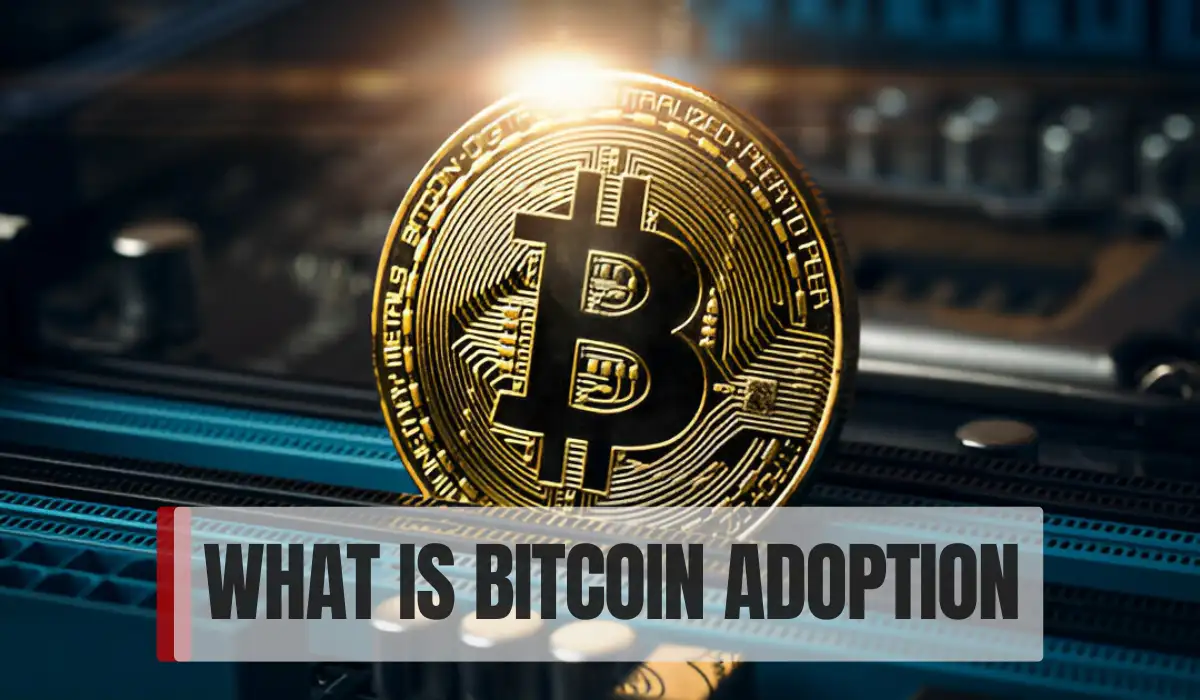Bitcoin adoption simply means the acceptance of the coin as a store of value and a form of currency. But at what level? What drives it? And finally, what could be the implications of such a move?
Let’s find out.
What is Bitcoin Adoption?

Bitcoin adoption is the integration of the token into our daily lives as a means of payment and investment. It can happen at various levels, starting with individual-level adoption to regulatory and global adoption.
Cryptocurrency is not a strange topic anymore and around 1 billion people around the world use these digital tokens for transactions, among which 50 million people own Bitcoin.
Bitcoin transactions are so common that an estimated 50,000 transactions of Bitcoin happen on a daily basis. All this data indicates an increasing Bitcoin adoption rate all over the world, particularly in developed countries.
Bitcoin Adoption: What Drives It?
There are plenty of reasons why Bitcoin has gained a massive following within a decade of its inception. These are the same factors that drive the adoption of Bitcoin as a form of currency and store of value.
Scarcity
Bitcoin has a limited supply of 21 million coins. This is a way of creating demand with a finite supply. Also, it protects the coin from devaluation during inflation, unlike fiat currency.
Scarcity makes the coin exclusive, which in turn makes everyone want to get their hand on it. Especially with the value of the coin going up, people take more interest in being a part of it as they are scared of losing an effortless opportunity to create wealth.
Along with this factor, the stories, and news about certain Bitcoin investors becoming millionaires, attract even more people to the market which speeds up the adoption.
Financial inclusion
Bitcoin has the potential to improve financial inclusivity by catering to the needs of a population where traditional banking services are not available.
Moreover, a cryptocurrency transaction comes with better perks than when an intermediary like the government or the bank is involved.
Bitcoin transactions have comparatively lower transaction fees and require no additional charges when a cross-border transaction is made. This also allows the underserved section to participate in the global economy like never before.
Decentralization
The blockchain network Bitcoin is founded on is not only tamper-proof and unalterable, it is also decentralized.
Although this is a demotivated factor when it comes to countries adopting Bitcoin as a legal currency, it most certainly encourages individuals and organizations to adopt the token for transactions.
With decentralization, it takes away the surveillance of a third party and brings everything under the control of the user.
In the case of adopting Bitcoin as a national currency, this feature threatens the nation’s security as it facilitates unauthorized transactions that could be used for bribery, money laundering, and even terrorist activities.
Security
Bitcoin blockchain provides the utmost security for transactions, as it cannot be manipulated. Altered, or hacked.
It ensures the security of the users’ funds within the network no matter what. The blockchain framework comprises risk management and cybersecurity practices and shields attacks and fraud that could normally threaten the security of your existing funds.
Bitcoin Adoption By Countries
Although only a few countries have legalized Bitcoin within their borders permitting to use it for normal transactions and investment, more and more countries are taking steps, following the lead.
El Salvador is one of the countries that pioneered the adoption of Bitcoin, followed by the United States, Canada, Australia, and the European Union.
At the same time, several countries are banning the use of Bitcoins, considering the risks involved. China and Taiwan banned the token in 2013, followed by Bangladesh, Bolivia, and Colombia in 2014.
The list continues with Afghanistan, Russia, and the Republic of Congo being the latest of them, banning the token in 2022.
The Bottom Line
Even with a strong positive side, the adoption of Bitcoin is always risky considering the volatility, scalability, occasional high transaction fees, and the ways it could influence the global economy.
Regarding the countries that adopted Bitcoin, at the same time, they are expected to make a huge gain assuming the value keeps going up as it does now, the volatility and security issues always put them at the risk of losing everything.
Either way, the impact is going to be huge and capable of transforming the future of nations.
